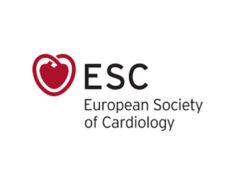A US$1.5 million grant from the National Institutes of Health (NIH), will help a research team from the University of Michigan and Integrated Sensing Systems (ISSYS), to complete the final preclinical testing required before seeking approval of a miniature, battery-free, wireless, cardiac implant that is under Food and Drug Administration’s Humanitarian Device Exemption.
“We are extremely excited to continue working with ISSYS to develop a wireless, implantable pressure sensor for our patients with complex forms of congenital heart disease,” said Bocks, paediatric cardiologist at the University of Michigan Congenital Heart Center and the University of Michigan CS Mott Children’s Hospital.
“This pressure sensor has the potential to greatly improve the care we provide to our most complex patients and will provide us with unprecedented opportunities to learn more about their unique physiology. We appreciate the NIH and the National Heart Lung and Blood Institute (NHLBI) for their willingness to fund research on patients with rare, severe forms of congenital heart disease,” added Books, who is also the project’s medical principal investigator.
Bocks and his team at the University of Michigan have been working on this device which will be used in infants and children for three years. The 2.5-year grant will help test a device that will reduce the need for invasive cardiac catheterisation procedures and provide a better understanding of congenital heart disease.
The device is a wireless, battery-free, miniature pressure sensor that is implanted within a heart chamber, Bocks commented. Once implanted, doctors can measure pressure inside the heart while the patient is being seen in the outpatient clinic without having to do a heart catheterisation. In the future, such monitoring may be performed remotely or from the patient’s home.
The device, which would stay in place permanently, is initially planned for use in patients with functional single ventricle conditions, such as hypoplastic left heart syndrome. It could be used in other forms of paediatric and adult heart disease in the future.
“We hope it would be going to market by year 2013,” Bocks said. “We expect the device to decrease the number of heart catheterisations, help doctors better monitor the effects of medications, and provide early detection for conditions such as blood clots in lungs.”
“We also hope that it will help us conduct more research,” he added. We will be able to obtain information from patients when they are sleeping, or exercising information we had not been able to get to before.”
The device is important because it will allow researchers to conduct more tests on these patients, which will lead to better treatments, said Nader Najafi, president and CEO, ISSYS and the project’s technical principal investigator.
“This grant helps us develop wireless, intelligent, miniature implants for patients with congenital and structural heart diseases. It paves the way for the start of clinical studies in infants and children with complex congenital heart defects,” he said.
“The paediatric medical device field represents unique commercialisation challenges due to its small size and stringent requirements,” Najafi added. “We are grateful to the NIH for this needed support for the challenging paediatric device field. The results of this effort will have important spillover effects for broader applications within the field of adult and paediatric cardiovascular medicine.”












